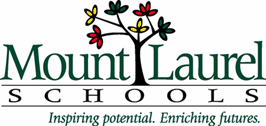
In the upcoming fall semester, Mt. Laurel students in grades six through eight, along with sixth- through eighth-grade students across New Jersey, will be introduced to a new, state-mandated science curriculum knows as the Next Generation Science Standards.
According to Mt. Laurel curriculum supervisor Sheila Miller, Mt. Laurel is ready.
Miller described the standards as a different approach to teaching science, as this will be the first time the curriculum will be written with “performance expectations” in mind.
Previous science standards had lists and concepts of what students should be able to understand, which could then be measured with assessments to show whether students had met that standard.
With performance expectations based learning in the NGSS, it’s what students should be able to “perform” overall rather than know that will demonstrate if they have met an instruction target.
Rather than learning about science ideas, Miller said students would be figuring them out.
“The whole goal of the curriculum is that students will be explaining phenomena,” Miller said.
For example, in the district’s current sixth- through eighth-grade science curriculum, one of the standards is learning about the systems of the human body, such as the functions of cells and the cellular makeup of human beings.
In the NGSS, students would instead start with an overall question such as “how do human beings get energy from food,” and they would then learn to how to develop a model explaining that process.
To answer the overall question, students would ask smaller, phenomena-based questions such as “What is my body made of,” to which they would analyze microscopic data and learn that humans are made out of cells.
Students might ask, “Where does food go” and analyze digestion and blood glucose data to learn food goes through the digestive system into the bloodstream.
Students would ask “Where does the blood take the food” and analyze food in the digestive system to learn the bloodstream takes food to cells all over the body.
From there, students would determine how food gets into the cells through osmosis, and so forth until the students had a working model of just how human beings get their energy from the food they eat.
“We used to start with the content and then do an experiment. Now we’re doing all the experiments to get to the content.” Miller said.
Miller said students retain knowledge better if they learn content through first doing activities or experiments rather than first being presented with information to memorize before actually performing any work.
“It’s part of them constructing their own understanding,” Miller said.
Only after students had engaged in scientific practices would students then come up with the scientific content they need to know.
With the NGSS, Miller said there would be more learning focused around discussions and data research to come up with one’s own conclusions.
In another example, students might be asked to construct an experiment where objects of different masses, such ping pong balls, tennis balls and golf balls, are dropped from the same height, with students then collecting their data and constructing graphs. Only after that experiment would students then focus on the content of examining their data and learn what kinetic energy is.
Miller expressed confidence in the district being prepared to implement the new standards, as she said the district spent most of last school year getting ready for curriculum writing before actually writing it in last summer.
“About a month ago, I was at a regional curriculum local meeting and they were asking us which districts were feeling ready to implement this in September, and I was the only one,” Miller said.
With fall semester approaching, Miller said the new curriculum would first be applied to sixth- through eighth-grade classes, per state guidelines, with the district expected to rollout the curriculum for grades K-5 for the following year.









